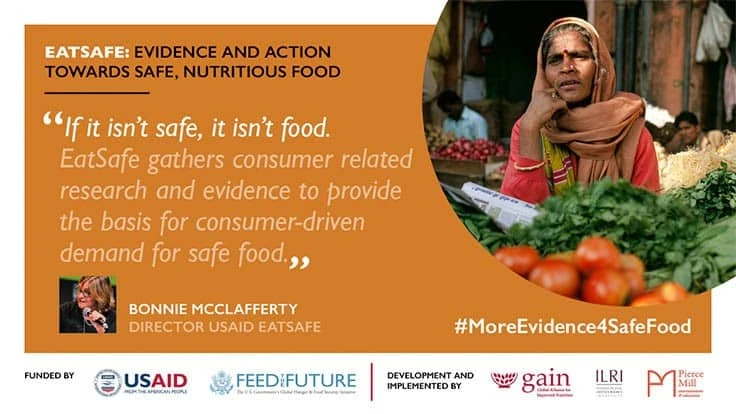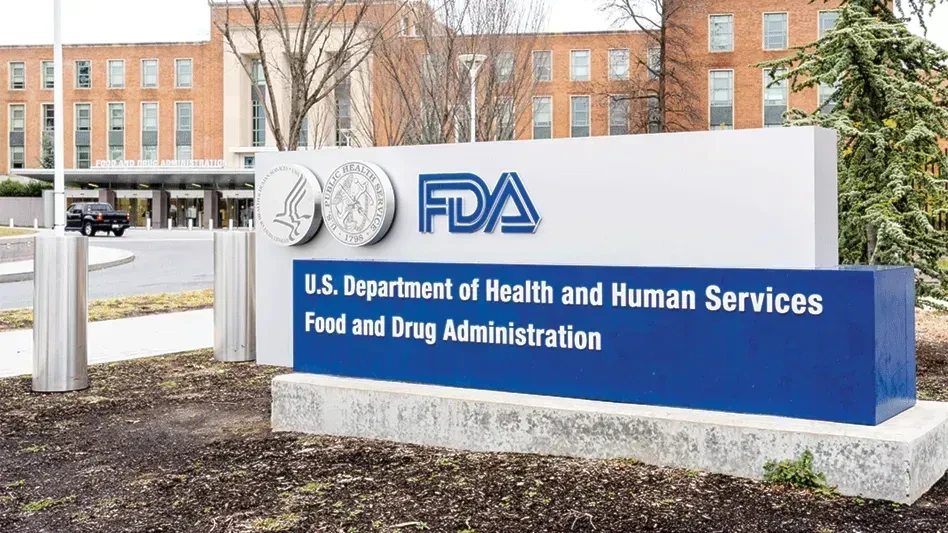
EatSafe
In 2015, the World Health Organization reported that over 400,000 people died annually from foodborne diseases. In 2018, the World Bank estimated that food safety costs $110 billion a year in lost productivity through illness and health costs, with sub-Sahara Africa affected the most. But more reliable and current data is needed.
"The human and financial costs of poor food safety are appalling yet it is being widely ignored," McClafferty said. "That has to change and we need to take action now to achieve better health outcomes for the 600 million people who each year get sick from unsafe food.
"We need to build a solid understanding of consumer values and perceptions so we can learn how we can foster a vendor- and consumer-led change. In parallel, we need to implement food safety governance and surveillance where often there is none at all while developing the capacity and infrastructure for change.
"We're calling on governments and donor groups to provide resources for further research so that evidence-based decisions about food safety measures in traditional markets, to ensure safer foods."
EatSafe has also launched the initial findings of its research into operations at traditional markets in Bangladesh, Kenya and Nigeria, based on over 2,000 vendors and consumer interviews. Vendors are in favor of better COVID-19 safety practices, while consumers find them difficult to maintain. However, consumers have been making greater use of mobile money and shopping trips have been shorter and closer to home. There has also been an increase in cleanliness, particularly handwashing.
The panel's experts also weighed in:
Nasser: "Without food safety, there is no food security. The basics already started during the pandemic should be continued, like hand hygiene and cleanliness."
Ogunmoyela: "We need to rebuild traditional markets and make sure policies embrace them by upgrading facilities. And consumers must be given a voice in shaping the markets."
Prakash: "We have to empower traditional markets to use technology to connect with consumers. It is becoming the preferred mode of commerce for the youth. Street vendors beginning to accept digital payments is a great first step in that direction."
Latest from Quality Assurance & Food Safety
- Multistate Salmonella Outbreak Linked to Sweet Cream Mini Pastries
- Dr. Emilio Esteban Leaves USDA for Mérieux NutriSciences
- USDA Confirms New Strain of Bird Flu in Nevada Dairy Cattle
- Tecnologico de Monterrey Develops Nutraceutical Corn to Address Global Food Crisis
- Eurofins Healthcare Assurance Launches GMP Certification Program for Dietary and Food Supplements
- Calbee America Launches California R&D Innovation Center
- PepsiCo Completes Acquisition of Siete Foods
- Non-GMO Project Launches Non-Ultraprocessed Foods Verification




